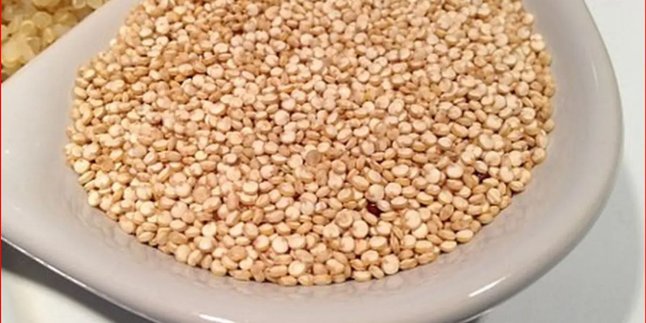Kapanlagi.com - The month of Sha'ban, a month rich in blessings in the Islamic calendar, is often overlooked between the months of Rajab and Ramadan. However, do not underestimate it! This month holds extraordinary virtues. The Prophet Muhammad (SAW) himself spent time increasing his worship in the month of Sha'ban, encouraging his followers to do the same in preparation for the holy month of Ramadan.
One special moment worth noting is the night of Nisfu Sha'ban. This night is believed to be a time for the forgiveness of sins and the distribution of fate for the coming year. Additionally, the Prophet Muhammad (SAW) often performed sunnah fasting during this month as a means of purifying oneself before entering Ramadan.
So, what practices should we carry out in the month of Sha'ban to not miss this valuable opportunity? Here is a summary from Fimela.com on Friday (31/1/2025) regarding the practices we can do to attain the virtues of the month of Sha'ban.
1. The Virtues of the Month of Sha'ban in Islam
The month of Sha'ban, often overlooked between the months of Rajab and Ramadan, holds various virtues that are worthy of gratitude. In a hadith narrated, the Prophet Muhammad (SAW) emphasized that this is the time when our deeds are presented before Allah (SWT), and he hoped that his deeds would be reported while fasting.
Moreover, the night of Nisfu Sha'ban also becomes a moment full of blessings, where Allah (SWT) descends to the worldly heavens to forgive the sins of His servants who sincerely seek forgiveness, except for those who are polytheists or hostile.
Therefore, this month is a golden opportunity to increase worship, prayer, and seeking forgiveness, as well as to prepare oneself to welcome Ramadan with a pure heart and soul, just as exemplified by the Prophet Muhammad (SAW) who always increased good deeds during this month.
2. Recommended Practices in the Month of Sha'ban
Shaban, a month full of blessings, is a very special time to increase acts of worship. One of the recommended ways is to observe Sunnah fasting, following the example of the Prophet Muhammad SAW, who is known to fast more in this month than in others, except for Ramadan.
In addition, we are also encouraged to increase our remembrance (zikir) and seek forgiveness (istighfar), with the promise of forgiveness from Allah for those who do so sincerely. Additionally, Sunnah prayers such as Tahajud and Dhuha are the perfect moments to express gratitude and seek forgiveness. Reading and reflecting on the Qur'an is also highly recommended as preparation to welcome the holy month of Ramadan.
And most importantly, the night of Nisfu Shaban offers extraordinary virtues, where Allah SWT is said to descend to the heavens of the world to forgive the sins of His servants who repent. Let us make the most of this month of Shaban, filled with worship and obedience!
3. When is Nisfu Syaban night 2025?
Nisfu Syaban night, a moment full of blessings that is eagerly awaited, will occur on the 14th of Sha'ban 1446 H, coinciding with Saturday, February 22, 2025. When this special night arrives, Muslims around the world will celebrate the opportunity to reflect and strengthen their faith.
4. Is fasting in the month of Sha'ban obligatory?
Fasting in the month of Sha'ban is not an obligation, but rather a highly recommended sunnah, considering that the Prophet Muhammad (SAW) often practiced it. This is a special moment to draw closer to Allah while also preparing oneself to welcome the holy month of Ramadan with abundant blessings.
5. What are the virtues of fasting on Nisfu Syaban?
Fasting on Nisfu Syaban, filled with deep spiritual meaning, is believed to bring blessings and erase all sins for those who perform it sincerely. It is a special moment for reflection and renewing intentions, making every second of fasting a field of abundant rewards.
6. Is it permissible to fast after Nisfu Syaban?
Some scholars argue that fasting after the 15th of Sha'ban should be avoided, except for those who have made fasting a part of their routine. In other words, if you are already accustomed to fasting before that date, then continuing that tradition is still allowed.
(kpl/srr)
Disclaimer: This translation from Bahasa Indonesia to English has been generated by Artificial Intelligence.












